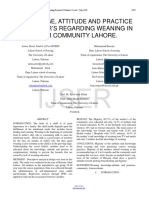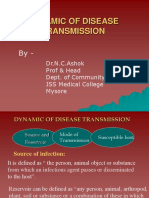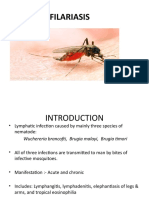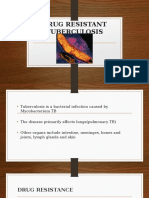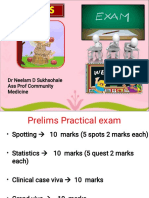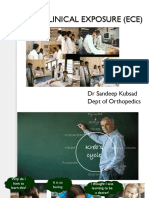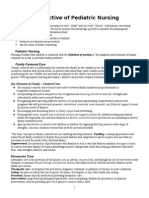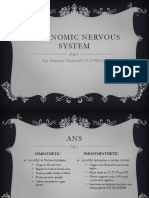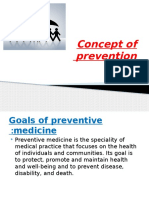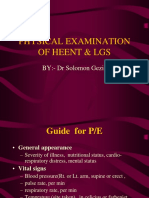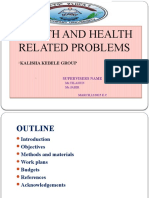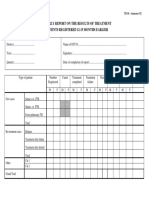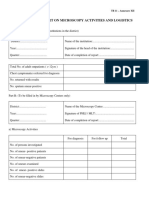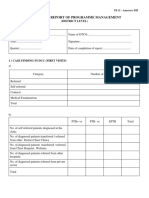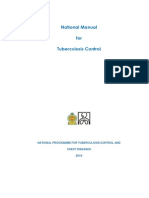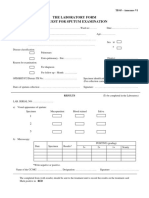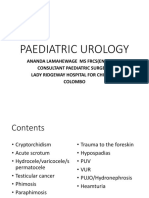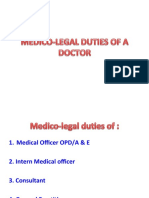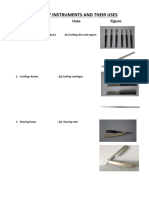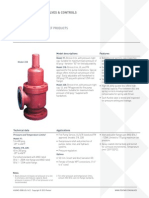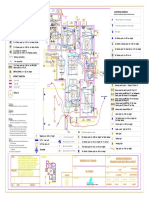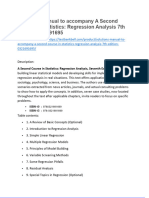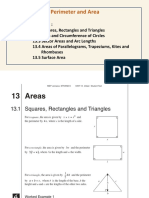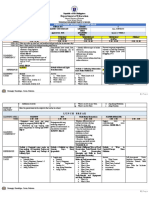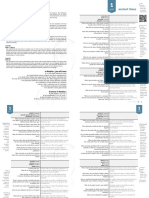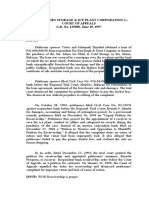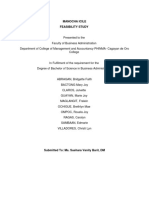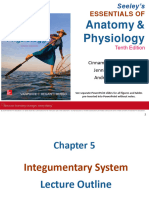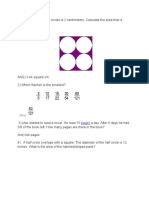Professional Documents
Culture Documents
11 - Professional Secrecy
Uploaded by
Trishenth Fonseka100%(1)100% found this document useful (1 vote)
538 views10 pagesbjbkknk
Original Title
11- Professional Secrecy
Copyright
© © All Rights Reserved
Available Formats
PDF, TXT or read online from Scribd
Share this document
Did you find this document useful?
Is this content inappropriate?
Report this Documentbjbkknk
Copyright:
© All Rights Reserved
Available Formats
Download as PDF, TXT or read online from Scribd
100%(1)100% found this document useful (1 vote)
538 views10 pages11 - Professional Secrecy
Uploaded by
Trishenth Fonsekabjbkknk
Copyright:
© All Rights Reserved
Available Formats
Download as PDF, TXT or read online from Scribd
You are on page 1of 10
• Hippocra(c
oath and Declara(on of
Geneva require adherence to
professional secrecy
• All informa(on about pa(ent/illness/
family be kept confiden(al
• Doctor should maintain highest degree
of confiden(ality
• Confiden(ality extends even aAer the
pa(ent’s death
• Never divulge it to 3rd party, even to
rela(ves without consent
• Disclosure would be a breach of trust
• If disclosure results in harm to pa(ent,
he can sue doctor for damages
• Informa(on can be divulged to 3rd party
only with expressed consent of pa(ent
• In case of minor or insane with consent
from guardian
• Informa(on can be shared with other
colleagues involved in the treatment of
the pa(ent
• Hospital authori(es responsible for
storing data on pa(ents securely. When
ordered should be forwarded to courts
confiden(ally
• Informa(on regarding illness of an
employee cannot be divulged to
employer without consent of pa(ent
• In some instances doctor can disclose
informa0on regarding illness of a
pa0ent
• By breaking the professional secrecy
• When there is a danger to the public/
pa0ent or state as a result of a disease
in a pa0ent
• Such informa0on should be disclosed directly
to the relevant authority
• Wherever possible try to obtain consent from
the pa0ent
• But the doctor has a right to inform the
relevant authority even if the pa0ent refuses
to give consent
• And doctor cannot be sued for damages
Ex. of cases of privileged communica5ons
1. Cook/ waiter in a hotel diagnosed to have
typhoid
2. Driver of a bus/ train is found to be colour
blind
3. No0fica0on of infec0ous diseases/occupa0onal
disease/ births/deaths to relevant authori0es
4. Suicidal tendencies of pa0ent to be no0fied to
parents/ guardian
5. Informa0on disclosed to courts by the
doctor regarding a pa0ent is absolutely
privileged
6. Medical examina0on findings can be
disclosed to insurance company when
taking an insurance policy
7. If adult pa0ent shows suicidal tendencies
or be a danger to family, doctor should
inform about the condi0on to the family
8. Pa0ent with communicable disease or HIV/
AIDS disclose it to the family and spouse
9. Inform police when pa0ents admiSed
following assault, accidents, burns,
poisoning, criminal abor0on and sexual
assaults
10. In a medical negligence case filed against
the doctor he can give evidence on his
pa0ent’s illness
11. When repor0ng a case in a medical journal,
iden0ty of pa0ent should not be disclosed
You might also like
- Group Assignment Movie Review Chapter 1: Code of Ethics For AuditorsDocument6 pagesGroup Assignment Movie Review Chapter 1: Code of Ethics For AuditorsDaud Farook IINo ratings yet
- OSCE Station 1 Diabetic LL ExamDocument5 pagesOSCE Station 1 Diabetic LL ExamJeremy YangNo ratings yet
- AETCOM QuestionairDocument3 pagesAETCOM Questionairlatest techs&tips100% (1)
- Ethical and Legal Issues in Perioperative NursingDocument3 pagesEthical and Legal Issues in Perioperative NursingJohn Pearl Fernandez100% (2)
- The Premature BabyDocument92 pagesThe Premature BabyTrishenth Fonseka100% (1)
- SLEDocument42 pagesSLETrishenth FonsekaNo ratings yet
- Step 5 - PragmaticsDocument7 pagesStep 5 - PragmaticsRomario García UrbinaNo ratings yet
- 2022-02-03 Adidas Global Supplier ListDocument179 pages2022-02-03 Adidas Global Supplier ListTrần Đức Dũng100% (1)
- Hospital - A Complex System With Integrated ComponentsDocument4 pagesHospital - A Complex System With Integrated ComponentsSamNo ratings yet
- Knowledge Attitude and Practice of Mothers Regarding Weaning in Rular Community LahoreDocument6 pagesKnowledge Attitude and Practice of Mothers Regarding Weaning in Rular Community LahorePriyanjali SainiNo ratings yet
- Dynamic of DiseaseDocument8 pagesDynamic of Diseaseachuth29No ratings yet
- Communicable DiseasesDocument24 pagesCommunicable DiseasesJanus de LeonNo ratings yet
- GerdDocument19 pagesGerdMuhammad HafizdNo ratings yet
- First QuizDocument6 pagesFirst QuizCharlz ZipaganNo ratings yet
- Health Assessment MCQs QuizDocument6 pagesHealth Assessment MCQs QuizAddisu Sertsu100% (1)
- Spiritual Nursing SyllabusDocument1 pageSpiritual Nursing SyllabusVincent Quiña PigaNo ratings yet
- Filariasis in NepalDocument41 pagesFilariasis in NepalBinaya100% (1)
- Drug Resistant TuberculosisDocument58 pagesDrug Resistant TuberculosisbharatnarayananNo ratings yet
- 2.quality Assurance in NursingDocument7 pages2.quality Assurance in NursingNancy SamuelNo ratings yet
- Medication Errors: Causes and PreventionDocument22 pagesMedication Errors: Causes and PreventionUzamaNo ratings yet
- CATEGORICAL PROPOSITIONS ExercisesDocument1 pageCATEGORICAL PROPOSITIONS ExercisesMhild GandawaliNo ratings yet
- Leadership Mcqs PaperDocument6 pagesLeadership Mcqs PaperUmer IqbalNo ratings yet
- Community Medicine PDFDocument24 pagesCommunity Medicine PDFEkambaramNo ratings yet
- Intercollegiate Surgical Curriculum ENTDocument98 pagesIntercollegiate Surgical Curriculum ENTMendhi Ashish AnilNo ratings yet
- PSM Spot Community MedicineDocument20 pagesPSM Spot Community MedicinePramila MahaleNo ratings yet
- Provide Nursing Care in First Line PDFDocument219 pagesProvide Nursing Care in First Line PDFMisaw KasyeNo ratings yet
- Checklist For Case PresDocument3 pagesChecklist For Case PresBem PladeroNo ratings yet
- TUBERCULOSIS (Lec Community Medicine)Document24 pagesTUBERCULOSIS (Lec Community Medicine)wanderer_1010No ratings yet
- Recommendation Letter Format First Lady Office Minister of HealthDocument2 pagesRecommendation Letter Format First Lady Office Minister of HealthSowdatu Abdullah-Sandy100% (1)
- Early Clinical Exposure (Ece)Document30 pagesEarly Clinical Exposure (Ece)sandeepNo ratings yet
- Final exam - infectious disease epidemiologyDocument7 pagesFinal exam - infectious disease epidemiologyIsha Bhatt100% (1)
- Chapter 3 & 4 - Rights, Obligations, Duties and ResponsibiliDocument26 pagesChapter 3 & 4 - Rights, Obligations, Duties and ResponsibiliChalie Mequanent100% (1)
- 1st Infection Control Quiz ShowDocument24 pages1st Infection Control Quiz Showjonathan_carretasNo ratings yet
- OSCE - Breaking Bad NewsDocument2 pagesOSCE - Breaking Bad NewsEman ElzeftawyNo ratings yet
- Transcultural Nursing Theory of Madeleine LeiningerDocument31 pagesTranscultural Nursing Theory of Madeleine LeiningerCatherine Martinez AvilaNo ratings yet
- Lecture 2 - MeaslesDocument33 pagesLecture 2 - MeaslesShaimaa AbdulkadirNo ratings yet
- HIV/AIDS Nursing Knowledge AssessmentDocument9 pagesHIV/AIDS Nursing Knowledge AssessmentThalia FortuneNo ratings yet
- Summary-Effective Clinical and Practical Skill TeachingDocument2 pagesSummary-Effective Clinical and Practical Skill TeachingRanjita SantraNo ratings yet
- Chapter - 1 - Perspective of Pediatric NursingDocument4 pagesChapter - 1 - Perspective of Pediatric NursingAhmad S Alkarmy100% (1)
- Aetcom LectureDocument74 pagesAetcom LectureBittu Solanki100% (1)
- NATURAL HISTORY OF DISEASEDocument26 pagesNATURAL HISTORY OF DISEASEadinda mouzasNo ratings yet
- Basic Concepts in Infection Prevention and Control 2023Document44 pagesBasic Concepts in Infection Prevention and Control 2023Tannov SiregarNo ratings yet
- Autonomic Nervous System ABUADDocument41 pagesAutonomic Nervous System ABUADLucky ijehNo ratings yet
- Medicolegal Aspects of Anaesthesia and Dilemmas To AnaesthetistDocument58 pagesMedicolegal Aspects of Anaesthesia and Dilemmas To AnaesthetistVaibhav JainNo ratings yet
- Dermatology History and Examination FormDocument4 pagesDermatology History and Examination FormЂорђеNo ratings yet
- Concept of PreventionDocument48 pagesConcept of Preventionmahmoud100% (1)
- Physical Examination of Heent & LgsDocument34 pagesPhysical Examination of Heent & Lgstsehay asratNo ratings yet
- Nurses and Practice The Nurse Carries Personal Responsibility andDocument1 pageNurses and Practice The Nurse Carries Personal Responsibility andRajeshwari SrinivasanNo ratings yet
- Unit 5-7Document38 pagesUnit 5-7Lovelights ZamoraNo ratings yet
- Chapter - 1Document19 pagesChapter - 1Precilla C. StephenNo ratings yet
- Communicable Diseases ExplainedDocument329 pagesCommunicable Diseases ExplainedCarl WaletNo ratings yet
- Peplau's Interpersonal Relations Theory Power PointDocument10 pagesPeplau's Interpersonal Relations Theory Power PointCharisse Nicole DiazNo ratings yet
- Overview Nursing ResearchDocument9 pagesOverview Nursing ResearchWadyanNo ratings yet
- Polycythemia VeraDocument18 pagesPolycythemia VeraHSC UNITEDNo ratings yet
- Field Visits, Field Report Writing. LSN 10Document23 pagesField Visits, Field Report Writing. LSN 10Mokua FedinardNo ratings yet
- Theatre Nursing: By: Gachuhi WangariDocument130 pagesTheatre Nursing: By: Gachuhi WangariJonah nyachae100% (1)
- CBTPDocument30 pagesCBTPDaroo D.TNo ratings yet
- Effective Doctor-Patient CommunicationDocument24 pagesEffective Doctor-Patient CommunicationTheop AyodeleNo ratings yet
- Uses and Core Functions of EpidemiologyDocument17 pagesUses and Core Functions of EpidemiologySantosh KumarNo ratings yet
- Fundamental Nursing Skills GuideDocument31 pagesFundamental Nursing Skills GuideJosepheen RajaNo ratings yet
- Housing and Institutional Health EssentialsDocument37 pagesHousing and Institutional Health EssentialsChalie Mequanent100% (1)
- Presentation On Incidence and PrevalenceDocument17 pagesPresentation On Incidence and PrevalenceSUBHNo ratings yet
- Management of Tuberculosis: A guide for clinicians (eBook edition)From EverandManagement of Tuberculosis: A guide for clinicians (eBook edition)No ratings yet
- Mechanisms of Drug Toxicity: Proceedings of the Third International Pharmacological MeetingFrom EverandMechanisms of Drug Toxicity: Proceedings of the Third International Pharmacological MeetingH. RaškováNo ratings yet
- Quarterly Report On The Results of Treatment of Patients Registered 12-15 Months EarlierDocument2 pagesQuarterly Report On The Results of Treatment of Patients Registered 12-15 Months EarlierTrishenth FonsekaNo ratings yet
- Quarterly Report On Sputum Conversion of Positive Patients at The End of Intensive PhaseDocument1 pageQuarterly Report On Sputum Conversion of Positive Patients at The End of Intensive PhaseTrishenth FonsekaNo ratings yet
- Quarterly Report On Microscopic Activities and LogisticsDocument2 pagesQuarterly Report On Microscopic Activities and LogisticsTrishenth FonsekaNo ratings yet
- Quarterly Report On Case FindingDocument2 pagesQuarterly Report On Case FindingTrishenth FonsekaNo ratings yet
- Quarterly Report On Program ManagementDocument7 pagesQuarterly Report On Program ManagementTrishenth FonsekaNo ratings yet
- Laborotory Manual For Tuberculosis ControlDocument5 pagesLaborotory Manual For Tuberculosis ControlTrishenth FonsekaNo ratings yet
- Register of TB SuspectsDocument1 pageRegister of TB SuspectsTrishenth FonsekaNo ratings yet
- Quarterly Report On TB and non-TB WardsDocument3 pagesQuarterly Report On TB and non-TB WardsTrishenth FonsekaNo ratings yet
- National TB Control ManualDocument223 pagesNational TB Control ManualTrishenth FonsekaNo ratings yet
- National TB RegisterDocument2 pagesNational TB RegisterTrishenth FonsekaNo ratings yet
- Organization of NPTCCD PDFDocument2 pagesOrganization of NPTCCD PDFTrishenth FonsekaNo ratings yet
- Lab Form For Sputum Examination PDFDocument1 pageLab Form For Sputum Examination PDFTrishenth FonsekaNo ratings yet
- Duties of MOHDocument3 pagesDuties of MOHTrishenth FonsekaNo ratings yet
- QuotesDocument1 pageQuotesTrishenth FonsekaNo ratings yet
- Living With AFib Patient GuideDocument73 pagesLiving With AFib Patient GuideTrishenth FonsekaNo ratings yet
- 29 - Heart Disease Complicating PregnancyDocument18 pages29 - Heart Disease Complicating PregnancyTrishenth FonsekaNo ratings yet
- SLMC - Regulating Sri Lanka's Medical ProfessionDocument27 pagesSLMC - Regulating Sri Lanka's Medical ProfessionTrishenth FonsekaNo ratings yet
- 15 - CN Poisoning 2Document2 pages15 - CN Poisoning 2Trishenth FonsekaNo ratings yet
- Neck Pain and Pain Down The ArmDocument27 pagesNeck Pain and Pain Down The ArmTrishenth FonsekaNo ratings yet
- Paediatric UrologyDocument194 pagesPaediatric UrologyTrishenth FonsekaNo ratings yet
- 12 - Medical NegligenceDocument34 pages12 - Medical NegligenceTrishenth FonsekaNo ratings yet
- Gas Poisoning (Irrespirable Gases) : Asphyxial DeathDocument5 pagesGas Poisoning (Irrespirable Gases) : Asphyxial DeathTrishenth FonsekaNo ratings yet
- Medical Ethics Code ExplainedDocument23 pagesMedical Ethics Code ExplainedTrishenth FonsekaNo ratings yet
- 13 - Medicolegal Duties of A DoctorDocument13 pages13 - Medicolegal Duties of A DoctorTrishenth FonsekaNo ratings yet
- 10 - Introduction To Legal System in SLDocument6 pages10 - Introduction To Legal System in SLTrishenth FonsekaNo ratings yet
- 09 - Changes After Death and Time Since DeathDocument9 pages09 - Changes After Death and Time Since DeathTrishenth FonsekaNo ratings yet
- 08 - Post Mortem InstrumentsDocument6 pages08 - Post Mortem InstrumentsTrishenth FonsekaNo ratings yet
- Cad MCQ Unit 5Document3 pagesCad MCQ Unit 5ddeepak123No ratings yet
- Valvula ContraincendioDocument6 pagesValvula ContraincendiowidNo ratings yet
- Download 3000+ Books by Acharya Pt. Shriram SharmaDocument89 pagesDownload 3000+ Books by Acharya Pt. Shriram SharmaAllWorld GaayatreeParivaar SaharunpurNo ratings yet
- TwistiesDocument2 pagesTwistiesHazwan Hj YusofNo ratings yet
- Varun Valanjeri Electrical Layout-3Document1 pageVarun Valanjeri Electrical Layout-3ANOOP R NAIRNo ratings yet
- Year 11 GCSE Revision Guidance and Exam Booklet Solihull PDFDocument27 pagesYear 11 GCSE Revision Guidance and Exam Booklet Solihull PDFNoor Ulain Nabeela83% (6)
- Quam SingulariDocument2 pagesQuam SingulariMichael WurtzNo ratings yet
- Intro to Phenomenological ApproachesDocument11 pagesIntro to Phenomenological ApproachesToshi ToshiNo ratings yet
- Solutions Manual To Accompany A Second Course in Statistics Regression Analysis 7th Edition 0321691695Document23 pagesSolutions Manual To Accompany A Second Course in Statistics Regression Analysis 7th Edition 0321691695DonnaLopezysned100% (36)
- StudenttextDocument29 pagesStudenttextapi-195130729No ratings yet
- Peace Corps Small Project Assistance Program USAID Annual Report 1988Document334 pagesPeace Corps Small Project Assistance Program USAID Annual Report 1988Accessible Journal Media: Peace Corps Documents100% (2)
- DocumentDocument14 pagesDocumentAnjali RajaNo ratings yet
- Vicarious LiabilityDocument12 pagesVicarious LiabilitySoap MacTavishNo ratings yet
- Grade 6 Quarter 3 WHLP WEEK 4Document3 pagesGrade 6 Quarter 3 WHLP WEEK 4JaneDandanNo ratings yet
- 1 The Importance of Business ProcessesDocument17 pages1 The Importance of Business ProcessesFanny- Fan.nyNo ratings yet
- English DWDM 2022 Book 7 Int Sample PagesDocument7 pagesEnglish DWDM 2022 Book 7 Int Sample PagesLuiz Roberto MartinesNo ratings yet
- Soal Mid Ganjil 14Document4 pagesSoal Mid Ganjil 14Anonymous a2C6YgevfNo ratings yet
- Pink Illustrative Weather Quiz Game PresentationDocument28 pagesPink Illustrative Weather Quiz Game PresentationMark Laurenze MangaNo ratings yet
- Faculty of Health and Medical Sciences: Academic Terms and Fee Schedule For 2022Document3 pagesFaculty of Health and Medical Sciences: Academic Terms and Fee Schedule For 2022Sadwi MulatsihNo ratings yet
- Commodities Storage V CADocument4 pagesCommodities Storage V CAElah ViktoriaNo ratings yet
- Manocha Icile Feasibility StudyDocument95 pagesManocha Icile Feasibility StudyAlmadin KeñoraNo ratings yet
- 35th Bar Council of India Moot Court MemorialDocument17 pages35th Bar Council of India Moot Court MemorialHarshit Mangal100% (3)
- 5 Integumentary SystemDocument67 pages5 Integumentary SystemchelsealivesforeverNo ratings yet
- Importance of family history and learning about ancestorsDocument2 pagesImportance of family history and learning about ancestorsKei ArceñoNo ratings yet
- MMA2019 SDocument2 pagesMMA2019 SToni IbrahimNo ratings yet
- Cat Behavior - Facts and MythsDocument3 pagesCat Behavior - Facts and MythsCharlie CajigalNo ratings yet
- Method of Statement For ELV SystemDocument7 pagesMethod of Statement For ELV SystemKo ZayNo ratings yet
- MTSC QuestionsDocument8 pagesMTSC QuestionsAbhi RamNo ratings yet









